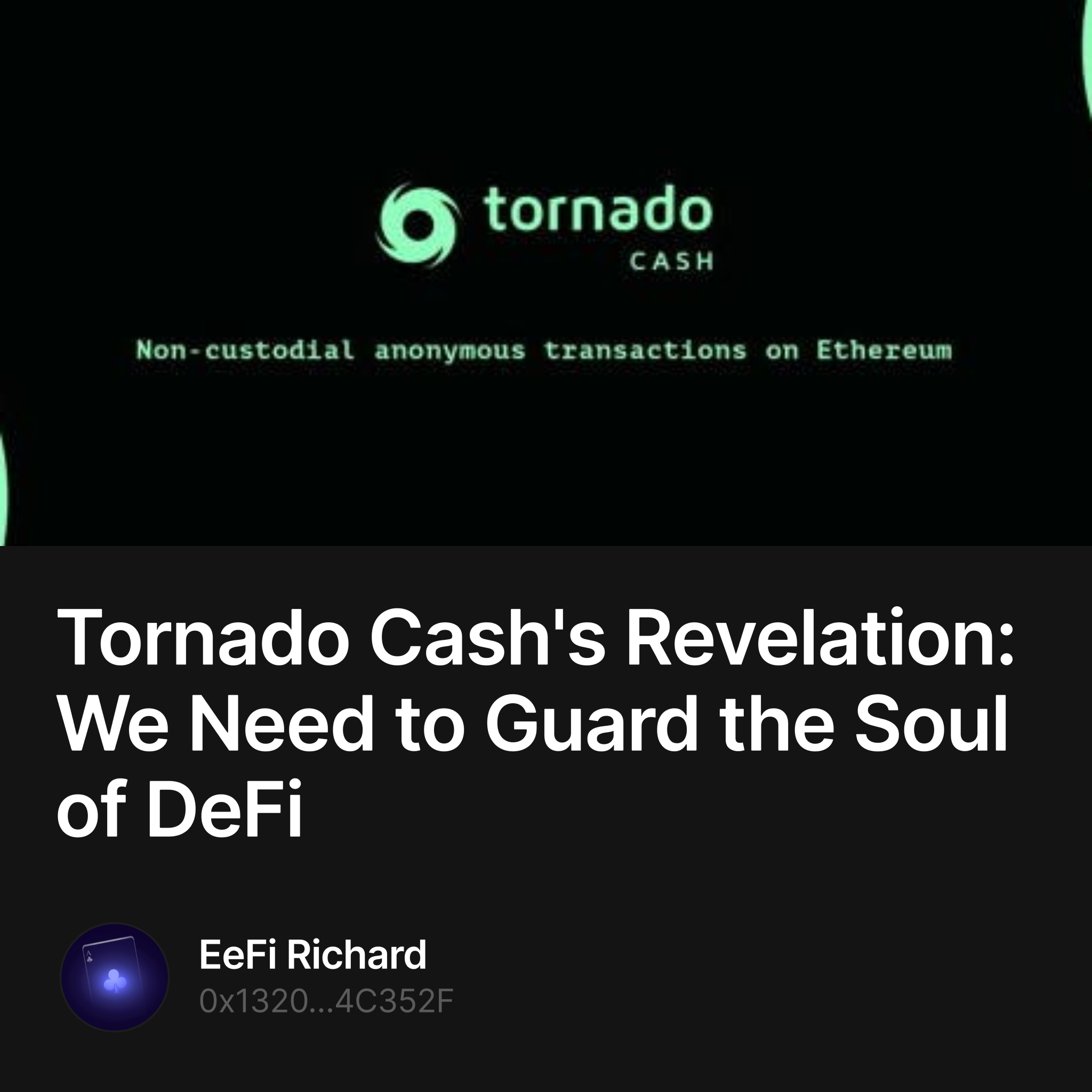In the past, we regarded the decentralized financial project as a game or an experiment to find happiness in our own comfort zone. However, with the continuous development of technology, the DeFi project is profoundly affecting the real world, which means that we need to take potential risks more seriously in the future. If we want to guard the decentralized soul of DeFi, we must take precautions. If you want to change the world, you can't be changed by the world.
What happened to Tornado Cash
Tornado Cash is a crypto-mixing protocol. By putting the user's coins into the mixer, Tornado Cash makes it impossible for the link path of the fund address to be checked, so as to protect the user's transfer privacy. According to the previous analysis of SlowMist AML, 74.6% of the money laundering funds in the security incidents in the first half of 2022 went to Tornado Cash.
On August 8, the U.S. Department of the Treasury announced sanctions against the decentralized crypto mixer Tornado Cash, and Tornado Cash website's was then inaccessible.
On the same day, $USDC in the Tornado Cash wallet address were frozen, and $USDC of any associated addresses could also be frozen.
On August 9, the GitHub accounts of Tornado Cash's developers were suspended.
On August 10, the suspected developer of Tornado Cash was arrested in the Netherlands.
On August 12, the official Discord community of Tornado Cash was banned and the community was transferred to Telegram.
Having allegedly involved in money laundering of more than $7 billion since 2019, Tornado Cash is the first DeFi project that has been sanctioned by the U.S. government.
Personal viewpoints
- Tornado Cash takes the lead in the privacy protocols, whose original purpose is to protect the privacy of personal funds. Zero-knowledge proof technology is widely used in its products. While protecting personal privacy, it is inevitable that users will commit money laundering. But it doesn’t means the developer should be arrested, we all know that AK-47 can kill people, but who will arrest Kalashnikov, the inventor of AK-47?
- The core of DeFi is decentralization, which requires permissionless, trustless application and censorship resistance of technical architecture. Certainly, DeFi projects of some other tracks need to work in in-depth cooperation with the real world, and sometimes make compromises to pay more attention to compliance management while reducing decentralization. However, as far as the privacy track is concerned, its core lies in decentralization, permissionless application, anonymity and censorship resistance. Otherwise, there is no value to be applied.
- The soul of DeFi is decentralization. The core asset of DeFi lies in its large and active development community, that is, the dynamic and creative developers all over the world. With the continuous development of DeFi, these developers need to be protected. They can be arrested or prosecuted for committing crimes, but they cannot be arrested for writing code. This applies not only to the development of DeFi, but also to the development of other fields.
Revelation of the incident
- We need to protect DeFi developers.
The risks of the real world call for the protection of the real world. While complying with laws and regulations, DeFi developers can use legal weapons to protect their legitimate rights and interests and works, sign disclaimers, and establish a cooperation mechanism with legal centers like law firms. The DeFi community can also seek more legal assistance for developers. For example, Tornado Cash this time has won the support of other DeFi communities like BanklessDAO. Decentralization not a lip service, or just a development agreement. We should be brave to defend the existing achievements, in a smart way.
- DeFi, and “DeTools”.
We have learned a lot from the sanctions against Tornado Cash. In terms of application, it can be backed up on the public chain of decentralized storage like IPFS. Thus, users can still log in and use it even if its web page is inaccessible. In terms of development, a decentralized code platform is needed. GitHub platform has proved to be unreliable. The Discord community cannot be relied on solely. Other social platforms such as Telegram or Lens Protocol are needed.
- Say NO to $USDC.
Circle, the issuer of $USDC, cooperated very well with the U.S. Department of the Treasury in the incident. Rumor has it that Circle did this for its own listing. Rumors aside, the incident has exerted a great impact on the credit and risk assessment of $USDC. On August 11, it was reported that MakerDAO, the issuer of Stablecoin $DAI, was considering converting all $USDC into $ETH worth of $3.5 billion, to prevent the "policy risks" of $USDC. Although Vitalik Buterin held that this was not a good idea (see the screenshot below).
$USDC is important collateral for a variety of Stablecoins, and its credit decline will undoubtedly bring opportunities to other competitive products, among which is the upcoming $SPOT of Ampleforth protocol. For more information, please refer to my previous articles. No more details will be covered here.
Finally, I would like to post some interesting tweets, thanks for reading!



